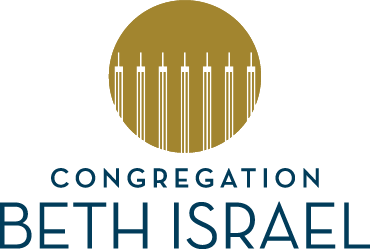“Keeping the Promise”

“Keeping the Promise”
From the desk of Rabbi David Lyon
This week, we open Deuteronomy, the last of the five books of the Torah. In Hebrew, the book is called Devarim, which begins, “Eileh hadevarim,” these are the words. What follows are the words that Moses spoke to the Israelite people as they made themselves ready to enter the Promised Land. Imagine the words and instructions that Moses wanted the Israelites to know and do before the end of his days. Moses knew that he wouldn’t enter the Land, and he would soon learn that his days were coming to an end. Moses’s words would affect the legacy of our people to this very day. Our own words will not likely be as indelible, but it doesn’t mean that they can’t leave a meaningful impression, too.
What speeches and instruction would we leave our families, friends, and co-workers? How would we like them to remember us through their deeds? Our legacy doesn’t begin with the day we were born. It begins with what we inherited from previous generations, how their words, wisdom and faithfulness shaped our life, and what we will leave others to finish when we are gone.
What of the past? In Devarim, Moses implores the people to value justice. “Hear out your fellow Israelites, and decide justly between anyone and a fellow Israelite or a stranger. You shall not be partial in judgment; hear out low and high alike. Fear no one, for judgement is God’s” (Devarim 1:16). Fairness among us is an obligation. “Hear out low and high alike” is a direct reference to fairness that is due the poor and rich, and to cases that involve small and large matters. Though we rely on our justice system and also on settlements between parties that never reach a court of law, our tradition leaves ultimate judgment to God.
What of the present? Taking a cue from the role of a mentor, as Moses was for Joshua, his successor, the best teachers lead not just by words but also by deeds. In Hebrew, “devarim” means words and things. Some have noted that speaking mindfully and truthfully can create communities of trust that lead to positive outcomes. But, speaking disrespectfully and dishonestly can transform words into things, which become tools for insurrection and dislocation of community and heritage. To be a mentor is also to prepare for the future and for one’s successor in the family, in business, and in one’s faithfulness.
What of the future? Torah ended with a promise, not a bundle (inheritance). That is, Torah ended with a memory of Moses, “the greatest prophet who ever lived,” to lead us to the Promised Land. There the Biblical promise would be fulfilled and our people would be sustained. When our life’s legacy is told, it should include a promise to sustain the Jewish people — its houses of worship, its schools, and its Land — and any bundle (inheritance) should be assigned for that purpose.
Without the words that Moses spoke to the people, the land that flowed with milk and honey would have been the end but not the means. Instead, centuries later, modern Israel has transformed a land of potential into a land of plenty. The question that lingers is what will we, who are still in our prime, do to honor the past, build in the present, and leave for the future to complete? The answers reflect our Jewish view of time and world history. The questions have been posed correctly; now, what will be our indelible answers?
Shabbat Shalom,
![]()
